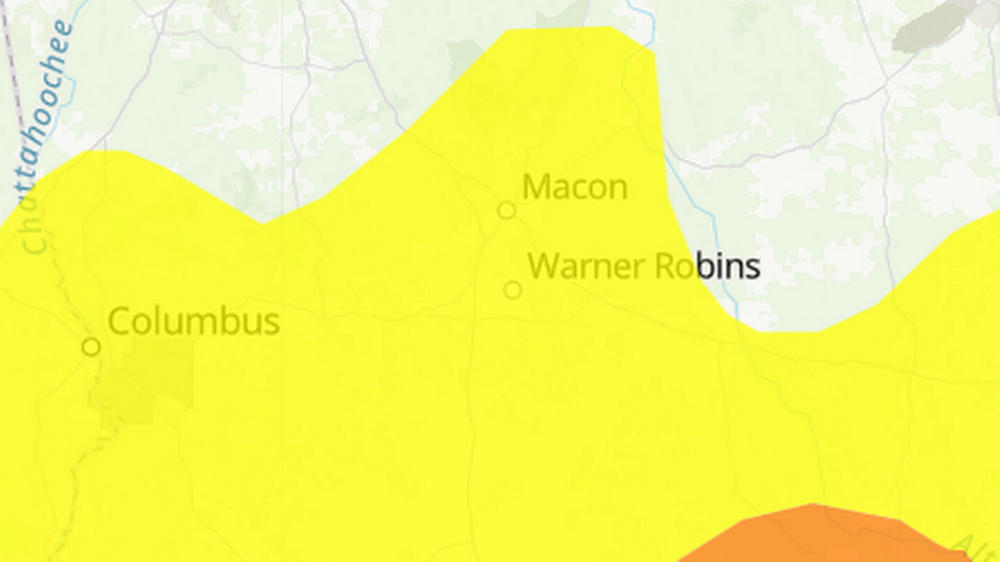
Caption
Canadian wildfire smoke has contributed to smoky conditions in Middle and South Georgia early this week.
Credit: AirNow

Canadian wildfire smoke has contributed to smoky conditions in Middle and South Georgia early this week.
In parts of South and Middle Georgia, residents woke up this morning to hazy skies — a result of a renewed blanketing of the Southeast by Canadian wildfire smoke.
Tuesday morning, air quality monitors near Macon and Albany registered pollution levels the EPA categorizes as “unhealthy for sensitive groups” like those who suffer from asthma or other lung diseases.
The pollution receded to “moderate” levels later in the day, but Eleanor Partington, a service climatologist at the Georgia Environmental Protection Division, said wind conditions could portend “a smoky day tomorrow as well.”
The smoke is moving westward from the Atlantic coast, and affected Florida more severely than Georgia. In Georgia, it stayed south of the Fall Line, a prehistoric geologic divide that traverses Middle Georgia.
Partington said the smoke could remain trapped over Georgia for the next few days by a pressure system of dry, stable air, but the smoke will likely move elsewhere or dissipate by this weekend due to increased convection in the atmosphere.
Climatologists’ best guess is that the smoke affecting Georgia from Columbus to Macon was caused by a combination of Canadian wildfires and local prescribed burning.
It’s difficult for state agencies to pin down where agricultural activity is causing smoke, Partington said, because farmers don’t have to notify the EPD every time they engage in burning.
A statewide ban on prescribed burning is imposed every summer to prevent wildfires. This ban was lifted Sunday.
Scientists say the conditions that have enabled this year’s deadly wildfires in Canada are likely to occur more frequently as the earth warms.
In July, Canadian wildfire smoke caused Georgia’s worst smoke event in at least five years.
Statewide air pollution forecasts are available at AirGeorgia.org, and nationwide forecasts and records can be viewed at AirNow.gov. The air quality reports are color-coded according to the Air Quality Index, a national standard; some locations near Macon and Albany reached orange levels Tuesday morning.
If AQI levels reach code red, the air is considered unhealthy for members of the general public, not just those with particular sensitivities to air pollution, and it is recommended to minimize outdoor activity.
This story comes to GPB through a reporting partnership with Ledger-Inquirer.